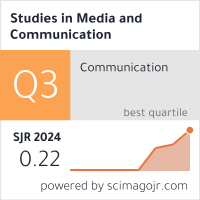Efficacy of Environmental Health E-Training for Journalists
Abstract
Communities report a low level of trust in environmental health media coverage. In order to support risk communication objectives, the goals of the research study were to identify whether or not there is a gap in environmental reporting training for journalists, to outline journalists’ methods for gathering environmental health news, to observe journalists’ attitudes toward environmental health training and communication, and to determine if electronic training (online/e-training) can effectively train journalists in environmental health topics.
The results indicated that environmental journalists have very little to no formal environmental journalism training. In addition, a significant percentage of journalists do not have any formal journalism education. Respondents most preferred to receive continuing environmental journalism training online. Online instruction was also perceived as effective in increasing knowledge and providing necessary reporting tools, even among participants adverse to online instructional methods.
Our findings highlight the changing media climate’s need for an increase in electronic journalism education opportunities to support environmental health journalism competencies among working professional journalists.
Full Text:
PDFDOI: https://doi.org/10.11114/smc.v2i1.387
Refbacks
- There are currently no refbacks.
Studies in Media and Communication ISSN 2325-8071 (Print) ISSN 2325-808X (Online)
Copyright © Redfame Publishing Inc.
To make sure that you can receive messages from us, please add the 'redfame.com' domain to your e-mail 'safe list'. If you do not receive e-mail in your 'inbox', check your 'bulk mail' or 'junk mail' folders.
If you have any questions, please contact: smc@redfame.com
------------------------------------------------------------------------------------------------------------------------------------------------------

